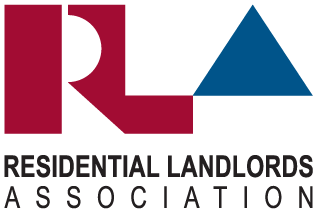Tenants
We outline on this page a basic, quick guide and overview for Tenants, to explain what is typically involved with letting a property. If you need any further information or advice, please don’t hesitate to contact us.
- Holding Deposit (per tenancy)
- Tenant Fees Schedule
- Tenancy Agreement
- Payment
- Managed Properties
- Rental Payment
- Notice to end a tenancy
- Insurance
- Inventory
- Deposit Returns
- Tenants’ obligations
- Property Inspection
- Council Tax & Utilities
Holding Deposit (per tenancy)
One week’s rent. This is to reserve a property. Please Note: This will be withheld (not returned) if any relevant person (including any guarantor(s)) withdraw from the tenancy, fail a Right to-Rent check, provide materially significant false or misleading information, or fail to sign their tenancy agreement (and / or Deed of Guarantee) within 15 calendar days (or other Deadline for Agreement as mutually agreed in writing).
Tenant Fees Schedule
New assured Shorthold tenancies (ASTs)
Holding Deposit (per tenancy)
One week’s rent. This is to reserve a property. Please Note: This will be withheld if any relevant person (including any guarantor(s)) withdraw from the tenancy, fail a Right to-Rent check, provide materially significant false or misleading information, or fail to sign their tenancy agreement (and / or Deed of Guarantee) within 15 calendar days (or other Deadline for Agreement as mutually agreed in writing).
Security Deposit (per tenancy. Rent under £50,000 per year)
Five weeks' rent. This covers damages or defaults on the part of the tenant during the tenancy.
Security Deposit (per tenancy. Rent of £50,000 or over per year)
Six weeks’ rent. This covers damages or defaults on the part of the tenant during the tenancy.
Unpaid Rent
Interest at 3% above the Bank of England Base Rate from Rent Due Date until paid in order to pursue non-payment of rent. Please Note: This will not be levied until the rent is more than 14 days in arrears.
Lost Key(s) or other Security Device(s)
Tenants are liable to the actual cost of replacing any lost key(s) or other security device(s). If the loss results in locks needing to be changed, the actual costs of a locksmith, new locks and replacement keys for the tenant, landlord & any other persons requiring keys will be charged to the tenant. If extra costs are incurred there will be a charge of £15 per hour (Inc. VAT) for the time taken replacing lost key(s) or other security device(s).
Variation of Contract (Tenant’s Request)
£50 (inc. VAT) per agreed variation. To cover the costs associated with taking landlord’s instructions as well as the preparation and execution of new legal documents.
Change of Sharer (Tenant’s Request)
£50 (inc. VAT) per replacement tenant or any reasonable costs incurred if higher. To cover the costs associated with taking landlord’s instructions, new tenant referencing and Right-to-Rent checks, deposit registration as well as the preparation and execution of new legal documents.
Early Termination (Tenant’s Request)
Should the tenant wish to leave their contract early, they shall be liable to the landlord’s costs in re-letting the property as well as all rent due under the tenancy until the start date of the replacement tenancy. These costs will be no more than the maximum amount of rent outstanding on the tenancy.
Tenancy Agreement
A tenancy agreement must be signed prior to the tenancy commencing, the agreement outlines both tenant and landlord obligations.
We will contact all concerned parties at the end of the tenancy to ascertain if there is any desire to renew the agreement for a further period (subject to a successful initial tenancy period) and will liaise with the landlord to organise the documentation. It is important you note that the agreement is made between landlord and tenant, we act for the landlord only.
By legal requirement we will issue you with a sample template agreement which we ask you read very carefully, should any questions arise regarding this legal document we advise you to seek independent legal advice.
Payment
Once a moving date has been agreed and references have all been approved by the landlord, the tenancy agreement will need to be signed by all parties and the initial monies in full will become due less any holding deposit previously paid; This is made up of the following:
- Deposit is equivalent to a month’s rent unless otherwise stated.
- The first month’s rent in advance. (Rent is worked out on a per calendar month basis). If the property is advertised at a weekly rate, this is calculated by multiplying the weekly rent by 52 weeks and divided by twelve months to give the per calendar month rental figure.
- The above monies need to be in a cleared form before the tenancy is able to commence, accepted payment methods are cash, card, bank transfer, online via the website or standing order.
Managed Properties
If we are requested to fully manage the property you are letting, we will inform you of this prior to your tenancy commencing. As managing agents, any faults or issues within the property will need to be reported to us and we will deal with the problem as quickly and efficiently as possible. Failure to report an ongoing problem may turn the onus onto you; please report any problems you feel need attention.
Rental Payment
Rental payments are collected by us for managed properties. If a Landlord is managing a property themselves, we will collect the first month’s rent and thereafter a standing order form with the landlord’s bank details should be set up from your account to theirs.
Notice to end a tenancy
To terminate your tenancy subject to term, you will normally be required to give us at least one month notice in writing of your intention to leave, this is usually on or before your rent due date unless otherwise specified in your specific tenancy agreement.
Insurance
The responsibility for your belongings are down to you, you must ensure you have adequate contents insurance, the landlord accepts no responsibility and cannot be held responsible for any loss or damage to tenants possessions.
Inventory
A well-prepared inventory and check-in report protects landlords and tenants alike, providing an accurate description of the condition and contents of a property at the start of a tenancy.
The condition of the property and its contents at the end of the tenancy is then compared back to this report in the form of a check-out report. The inventory clerk will also provide an opinion on whether any damage that has arisen during the tenancy is attributable to the tenants, to ‘fair wear and tear’ or to the landlord as required maintenance.
It is in a landlord’s interest to ensure that inventories are prepared for properties that they own. In the worst case scenario, should you end up in court, the judge will tend to look more favourably on an impartial, unbiased inventory prepared by a third party unconnected to either the landlord or the tenants. Inventories prepared by landlords could be viewed as biased and one-sided.
Normally an inventory of the property condition, furniture and fittings and effects will be prepared by the landlord, or an independent inventory clerk instructed by the landlord prior to the tenancy commencing. The tenancy is checked and agreed between the tenant and the landlord at the tenancy commencement.
Deposit Returns
When your tenancy ends, an inspection of the property will be carried out, either by the landlord or an independent inventory clerk instructed by the landlord.
Tenants’ obligations
The responsibility for the property lies with the tenant during the period of tenancy, always ensure that the property is fully secured and that during the winter month’s steps are taken to prevent freezing of the water and heating system.
Property Inspection
If we are instructed as managing agents for your property, we will carry out quarterly or six monthly inspections to assess the condition of the property and that everything is being kept in a satisfactory condition. We will always arrange this with you at a mutually convenient time.
Council Tax & Utilities
It is the tenant’s responsibility to inform the utility companies of their occupation of the property at the commencement of the tenancy, and to pay council tax to the local authority. Students, who may be exempt from the payment of council tax, are responsible for informing the Local Authority of this. The tenant will be responsible for the payment of gas, electricity, water, broadband, council tax and television licence. (Unless otherwise agreed and stated on the tenancy agreement).







